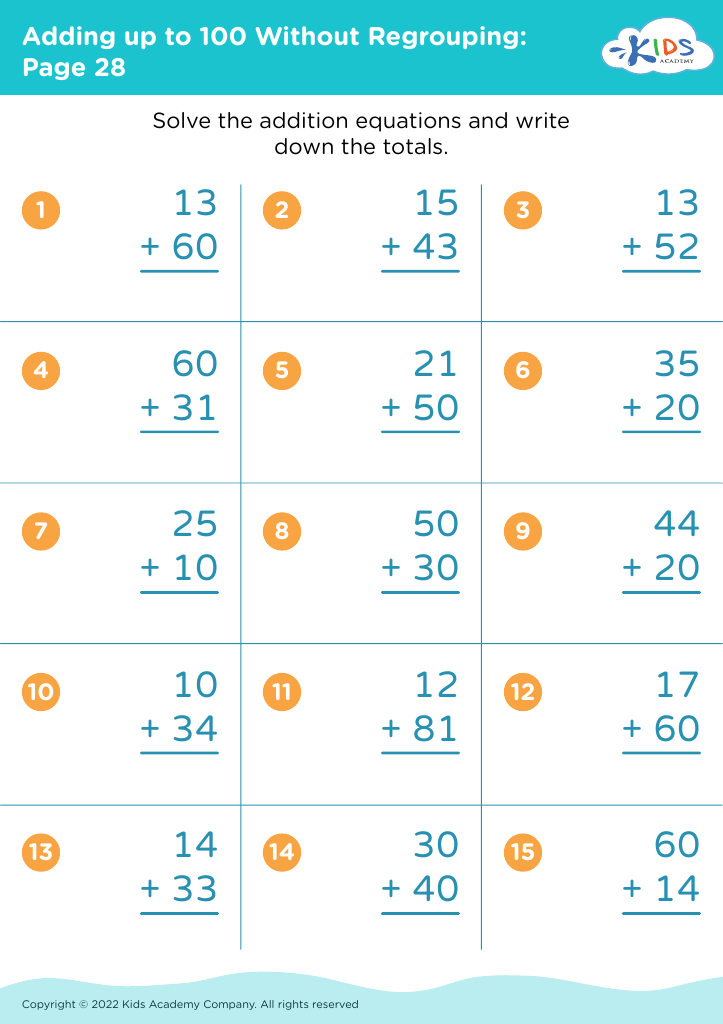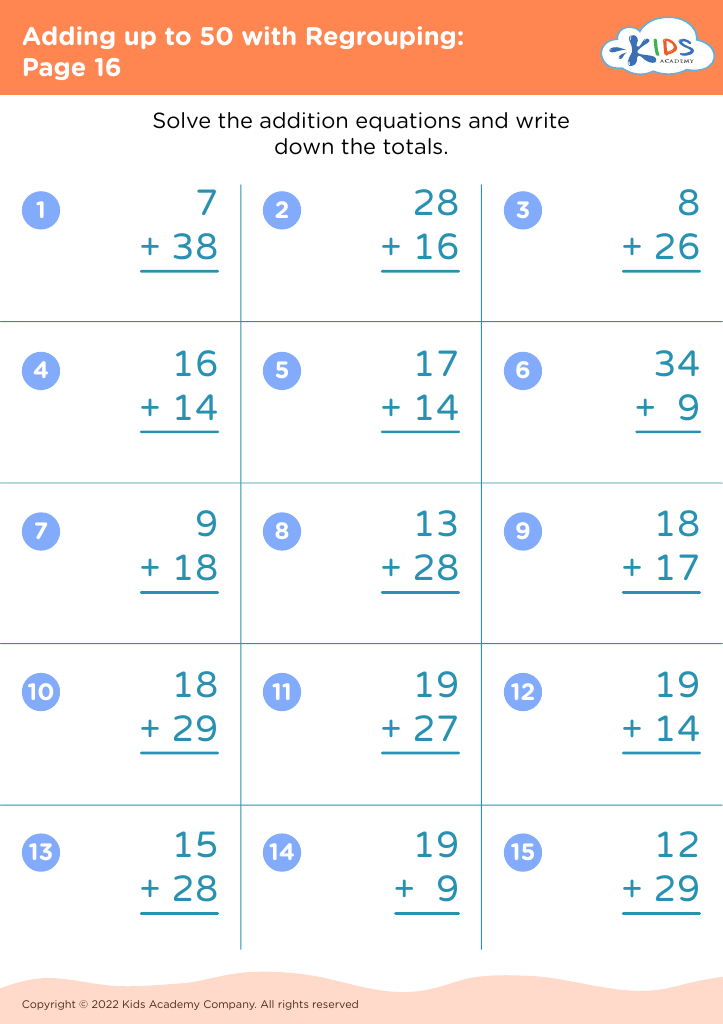Critical thinking development Addition Worksheets for Ages 3-8
3 filtered results
-
From - To
Unlock your child's potential with our Critical Thinking Development Addition Worksheets, designed for ages 3-8! These engaging resources help young learners master addition while enhancing their cognitive skills. Our worksheets encourage kids to think critically by solving problems, analyzing patterns, and applying mathematical concepts in fun, interactive ways. Each activity is crafted to promote logical reasoning and improve comprehension, making math enjoyable and interactive. Perfect for both classroom and home learning, these worksheets foster mastery of addition fundamentals while nurturing essential critical thinking abilities. Equip your child with the skills they need for future academic success – download your worksheets today!
Critical thinking development in young children, particularly ages 3-8, is essential as it lays the foundation for future learning and problem-solving skills. Parents and teachers should prioritize nurturing these skills for several reasons.
First, critical thinking enhances a child's ability to analyze information, draw conclusions, and make decisions based on evidence. In an age where information is readily available, helping children sift through and evaluate what they encounter prepares them for an increasingly complex world.
Secondly, early critical thinking fosters creativity and innovation. When children learn to ask questions, seek solutions, and explore different perspectives, they develop the skills needed to think outside the box and come up with unique ideas.
Moreover, encouraging critical thought promotes independence. Children who can think critically are more inclined to make their own choices and solve problems without relying solely on adults, building resilience and confidence.
Finally, these skills support academic success. Critical thinking is integral to subjects like math, science, and literacy, leading to improved performance in school.
By investing in critical thinking development from ages 3-8, parents and teachers equip children with the essential tools they need for lifelong learning, adaptability, and success in an ever-evolving world.



















